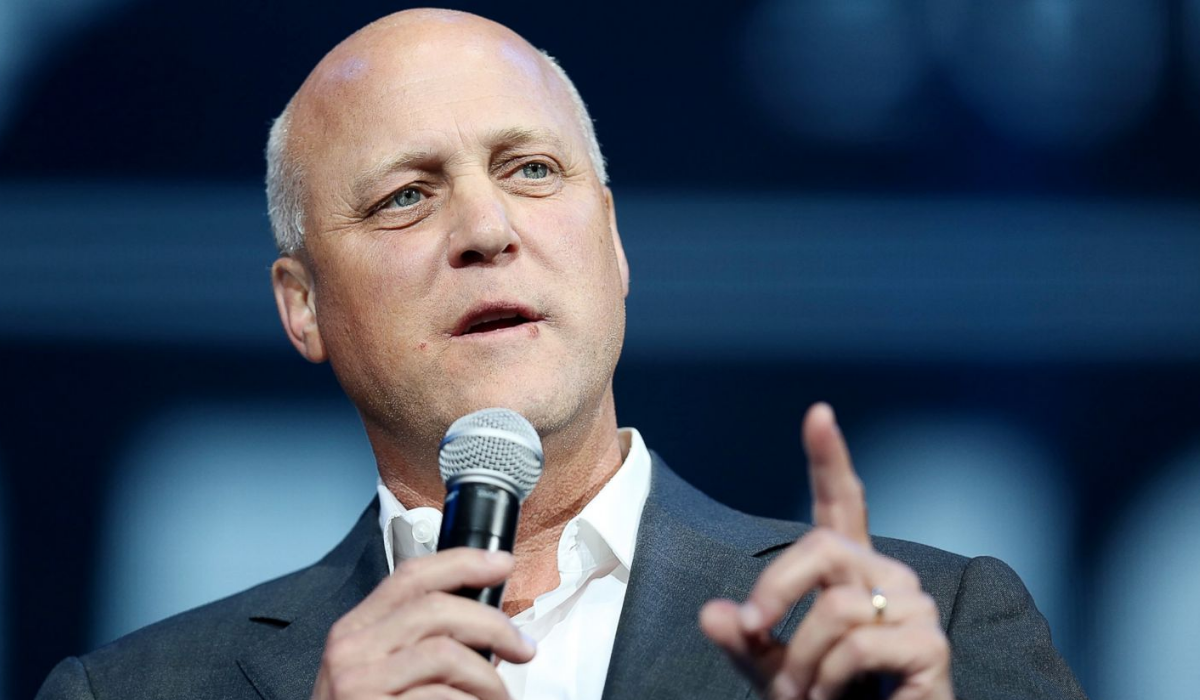Where Do We Go From Here?

Where do we go from here–chaos or community?
That was the central question Dr. Martin Luther King Jr. sought to answer in his final book bearing that title.
He used the word “we”—not “I,” not “me,” not “you.” We. It wasn’t a book complaining about the past. It wasn’t a book about fault. It was his central case for hopefulness, for continued nonviolent actions, for a moral movement that brought people together across race, class, and party lines for economic justice. And to me, his final written work was a case for finding common ground and building community in order to get that more perfect union in which we all aspire to live.
Once a year, we reflect on the life and legacy of Dr. King as a moral, spiritual, and intellectual leader. We discuss how far we have come on Civil Rights. And, we think about how far we have to go and the challenges yet to come.
But, this must be our daily work. It must be our daily mission to find common ground in each and every community.
Last year, I launched E Pluribus Unum to do exactly that. Our goal at E Pluribus Unum is to strive toward Dr. King’s vision of community where we’re actively and continually breaking down the barriers that so often divide us by race, class, and partisan politics, proving the American motto that “out of many, one,” and we are better for it.
Over the last 18 months or so, my E Pluribus Unum team and I have gone to 28 communities in 13 Southern states, speaking with over 800 people from all walks of life, seeking to learn firsthand what unites us and where we remain divided. Unfortunately, like throughout much of our nation’s history, it is clear from our travels that we still have a long way to go. We have been, and in many ways remain, divided by design.
That’s the main finding of our extensive research.
Today, we see this intentional division in the racial inequities that continue in neighborhoods, housing, schools, healthcare, voting precincts, public transit, banks, and at every step in the criminal justice system. We see it in the media, pop culture, and how we are taught history in school. One of the major challenges is that many white people lack an understanding of the scale of racism in America, including our racial history and how it still permeates today’s institutions. As a result, racism is often too narrowly defined as overt individual actions rather than systemic injustices which can be addressed through leadership and policy change. To tackle these divisions in the present, we must confront our history and our past. And if we do not reckon soon with our past, we face a future of even greater fissures and failures.
Despite the sobering nature of our findings, I do have hope. On our journey, we saw how deft local leaders are able to help residents reach common ground. We met countless angels among us who are doing the hard work of lifting others up and moving them forward. And we found that while tremendous challenges remain in most Southern communities, people of all races and walks of life share a sense of pride in their collective communities. We also found in polling that white, black and Latino residents also share similar views on the importance of equity, and they largely share a common belief that diversity strengthens a community more than it divides it.
Through the work of E Pluribus Unum, my intention is that in the national public discourse and conversations in our communities, issues of race and class are discussed in more nuanced and thoughtful ways that do not exacerbate social divides but rather build common ground. I hope that leaders, at all levels, set new, ambitious priorities and enact substantial changes in policy to redesign institutions and support more equitable communities. And, I hope that all people have a deeper understanding of systemic racism and the ways in which they can act on issues of racial and economic equity every day.
In the coming months, our E Pluribus Unum team will be unveiling new projects, including a leadership cohort designed to provide support for local, southern elected leaders who are committed to this work.
We must answer Dr. King’s question with unity of purpose. It must be our challenge to work toward community, not chaos, all 365 days of the year. Together, we can break down the barriers that have divided us by design and redesign our policies and communities that honor the true meaning of E pluribus unum.
This essay was featured in the January 19th edition of The Sunday Paper. The Sunday Paper inspires hearts and minds to rise above the noise. To get The Sunday Paper delivered to your inbox each Sunday morning for free, click here to subscribe.


